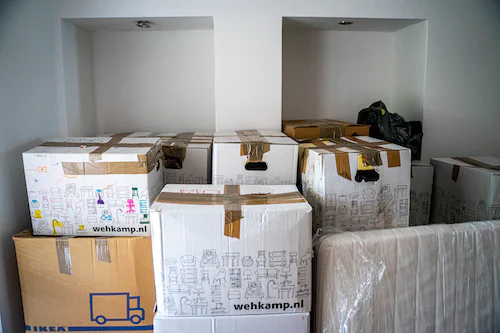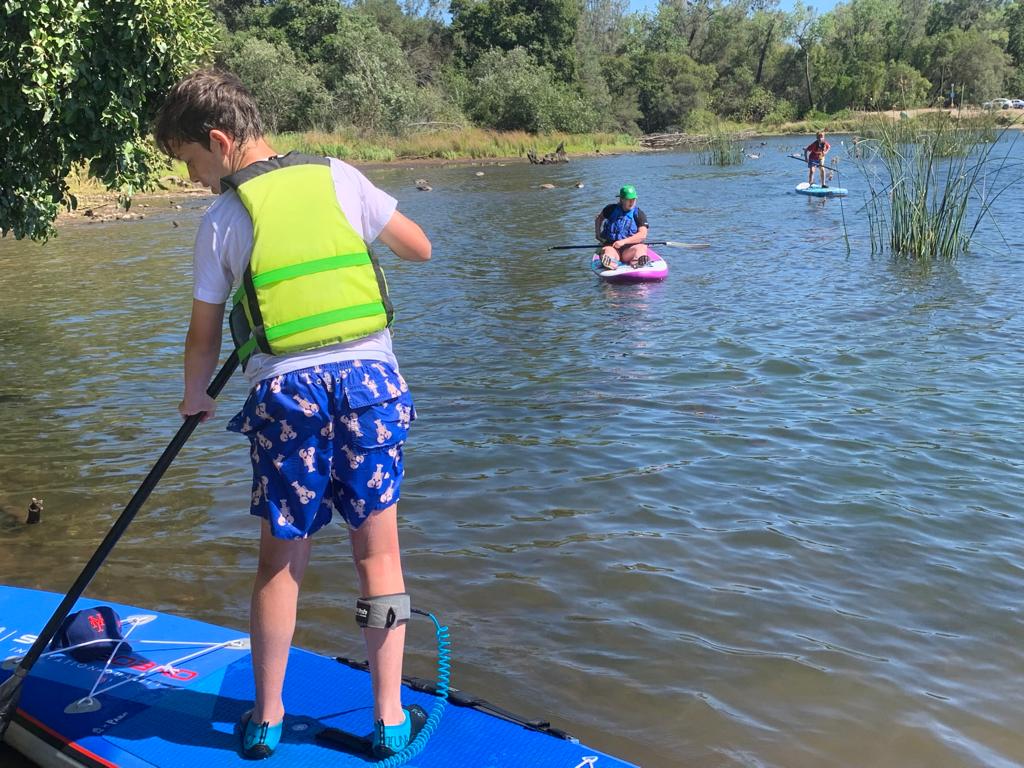Relocating with children

Relocating with children – what I’ve learnt
This is a blog from my friend Caroline who recently relocated to California with her family about what to consider before you go and once there. I’ve also included some experiences from a nanny who helped her nanny family with their relocation and my top tips on how you might approach this, if the option to relocate arose. Over to Caroline …
As I type, we’re getting ready for our first Ski Week here in California after arriving in June 2022 for a three-year relocation with my husband’s job. Hazel asked me to share with you what I’ve learnt about relocating with children and what I wish I’d known.
Firstly, we’re not rubbing shoulders with the stars! We moved to Sacramento, the state capital in north California. Just as you expect, it was gloriously hot or at least warm every day since we arrived until the end of October, and yes, there always seems to be a palm tree within sight (I love palm trees so I’m constantly on the lookout).
At first, we lived in temporary accommodation whilst we waited for our furniture which was being shipped so we were living with what we could pack and the odd thing that we’d bought since being here. I hope these tips are helpful – I have asked some English friends who have lived abroad (you might remember Claire from this blog about having children abroad) more extensively than me for their tips too so thanks go to Claire and Nikki for their contributions.
Before you go
My children are of an age whereby we had to be 100% honest about moving abroad. I’m not suggesting that you lie to your children, but we couldn’t just say it was a really long holiday or that we’d be back in a month and then not be. One of them was very excited and wanted to move the next day whereas the other was reluctant about the idea and made it very clear that he wanted to stay in England.
The enthusiastic one was a bonus as he helped keep the mood positive and optimistic alongside our cajoling of the reluctant one. We made sure that both boys had time booked in with family and their closest friends before departure, and the 10-year-old received a mobile phone slightly ahead of schedule so that he could keep in touch with people ‘back home’.
For Mr Reluctant we talked a lot about having a growth mindset and discussed friends who had been through significant change and how things had turned out for them. We reassured him that his feelings of anxiety about a new place were legitimate and shared, to a certain extent, by all of us. We asked him to create a list of all the places he’d like to visit in the US and things he’d like to do and as he had little control over this chapter of his life, we tried to put him in control of other situations.
Now let’s talk about packing. As I said, our furniture was being shipped but we were given an air freight allowance too, which was quite substantial. At the time, in the tumult of planning to leave our home, friends and family, it seemed like an extra chore to us to differentiate between air freight and shipping; but how I wished I had taken the time! It ended up being several months without belongings which were previously under-appreciated when they were readily available in our bedrooms, kitchens and playrooms.
In hindsight I wish I had kept some kind of track of what goes on in a 12-week time period to work out what I would need in the first 100 days or so: mundane day to day things that might make a new place feel like home, as well as rare occurrences. For example, we didn’t add our sons’ football boots to air freight and one of them has joined a team; it rained unexpectedly here for a few days and I hadn’t packed any coats; we went paddle boarding but I hadn’t packed any of those super useful water shoes; and the kitchen in our temporary accommodation isn’t equipped with the best utensils – I miss my own kitchen knives!
You won’t account for everything but just look through your calendar and think about what you might do in your new location and use the air freight allowance if you have one! You won’t realise how grateful you are for your own towels, kitchenware, children’s games and even that perfume you rarely wear.
First 100 days of living abroad
Having children is a real bonus when moving to a new place. They force you to do more than work, work, work and to explore new places as they need to be entertained. Our first few weeks in California were packed full of sight-seeing and trying new things, from an all-American 4th July-weekend rodeo to said paddle boarding; finding the cinema with ‘cool’ reclining seats and visiting historical landmarks like Sacramento’s Capitol Building.
If your children are of the right age, school is great for building routine and making friends for the whole family. We’re very lucky that the boys’ new school has been extremely welcoming, providing us with a fabulous host family who’ve readily answered my questions about how this works and how that works and kindly hosted us for Thanksgiving.
We are definitely trying to say ‘yes’ to all invitations. As Claire says, ‘Nothing endears expats to locals more than them showing a willingness to learn and take in some of the local customs.’ It’s great meeting new people and experiencing different things and of course, we’re building our network of friends and contacts. This network will be able to help you out of many a dilemma when their local knowledge will come to the rescue.
A pain in the neck for us, or should that be the arm, has been immunisations. There is a difference between UK and US child immunisation requirements which I just hadn’t anticipated. Our children were on about a vaccination a week which wasn’t nice for any of us. I wish I’d done my homework and paid to have them immunised in the UK where we understood the system, and everything was just a little more familiar.
And lastly, one of the things I’ve really relished about being a newcomer in a different country, is the liberation I feel! No one knows me and I don’t know everything about this place so I can freely ask ‘stupid’ questions; I can be the woman who wears shorts, if I want (I never wear them in England and on 40-degree days here, it really is essential!); and, importantly, I can try to make friends with everyone.
So far, I’ve been very lucky with our move, but I do feel grateful that I’m in a developed country that speaks English. I’m sure it would all be very different otherwise …

Thanks Caroline! Hazel here as I want to explain how relocating abroad with children might work with your childcare too. Here’s how it went for one of my nannies:
‘A few years ago, a family I worked for asked me to assist them to relocate from Sevenoaks to Singapore. I would say I was more of an extra pair of hands and company for mum whilst dad started his new job.
They had an eighteen-month-old and mum was expecting her second baby. Day to day jobs would still involve general nursery duties and I would have a mixture of sole charge and joint. I would often take the little boy out to find the local parks and help investigate any suitable groups for his age. The times I had sole charge it allowed mum to organise the house, investigate the area, meet new people etc. This can be a very stressful time for the parents and having me there meant that mum had one less thing to worry about, knowing her son was happy.
I wasn’t expected to work all day every day. I actually had quite a bit of down time to experience Singapore. I thoroughly enjoyed this as I am quite confident in new places, however a less confident nanny may not. I would still do the odd night’s babysitting for the parents so that they could go out for dinner. I think having me there enabled them to go out and have the reassurance that their child was with someone that they trusted. We would sometimes all go out together to investigate various areas and local attractions. I even got to visit Indonesia with them which was beautiful. I feel very fortunate that I got this experience.’
If you would like to take a British nanny with you here are some things to consider:
- You must communicate with your nanny as early as possible in the decision-making process. It is a big ask of your nanny, especially if it comes out of the blue and wasn’t discussed at interview, so you need to give them time to think about it.
- They will likely want to know about the duration of the posting, will they be able to take a partner, will they be able to come home to visit family, will you pay for those flights?
- As well as making plans for your own family, you will need to factor in your nanny too. You will need to help them with work visas, tax arrangements and other technical aspects of the move such as pension contributions while they’re abroad.
The benefit of taking a nanny is that it’s a smooth transition for your children and you have someone dedicated to their well-being when you arrive in a new country. As Caroline said, there’s a lot to do when you relocate with regards to settling in so a nanny could really help to ease the workload.
I would recommend that you and the nanny are 100% sure about the decision before you go, though. It’s not fair on your children or the nanny if it doesn’t work out – and there could be many unforeseen reasons why it doesn’t.
If your nanny has already been with you for a long time and is considered one of the family, then it could suit everyone. Be open minded, keep communication channels open and be flexible would be my top-tips!
I’m here to help if you need.
Hazel x
